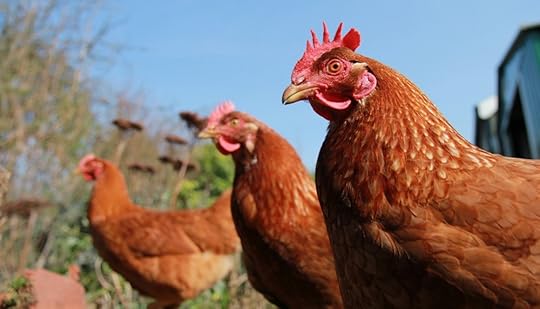My Husband Thinks he’s a Chicken: Learning to Enjoy our Symptom

This morning a friend relayed to me a little story about a woman who was complaining to her friend that her husband thought he was a chicken.
“A chicken,” exclaimed her companion in surprise, “You need to send him to a psychoanalyst straight away!”
“I know, I know,” replied the first woman, “But the thing is, we really need the eggs.”
I liked this joke because it reminded me that our symptoms don’t need to cause us, or the people around us, suffering. For example, keeping ones house extremely tidy might be the way a person manages their anxiety, but this isn’t in itself a problem unless it causes a suffering equal to, or greater than, that which it tries to keep at bay. There is an important difference between the person who likes to keep a tidy home and the person who can’t leave the house unless the place is tidy. In the latter, the ritual begins to impinge on the individual’s life and ultimately becomes a milestone round their neck.
Not only are some symptoms harmless, some can actually be harnessed for great good. In learning to enjoy our symptoms we can find ways of harnessing them in ways that enrich our lives. This process of Sublimation involves taking a repressed pain and channelling it into the production of something beautiful. Perhaps deepening our personal lives, or inspiring us to do something positive in society.
This idea can help us understand why Lacan talks about a symptom becoming a sinthome.
Sinthome is pronounced like Saint Homme, which means “Holy Man.” Here Lacan is implying that the site of our suffering can become a type of saint, speaking words of healing into our lives.
When speaking of healthy individuals, communities or societies we should be careful not to fall into the trap of thinking this involves getting rid of all the symptoms found there. The real challenge lies in finding a way to turn them into a source for good.
Peter Rollins's Blog
- Peter Rollins's profile
- 314 followers



